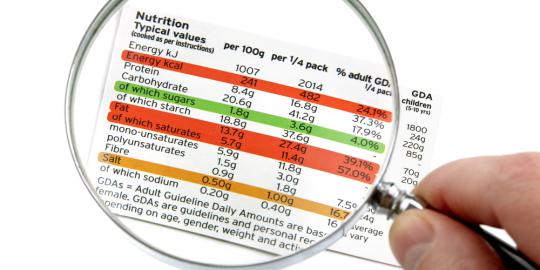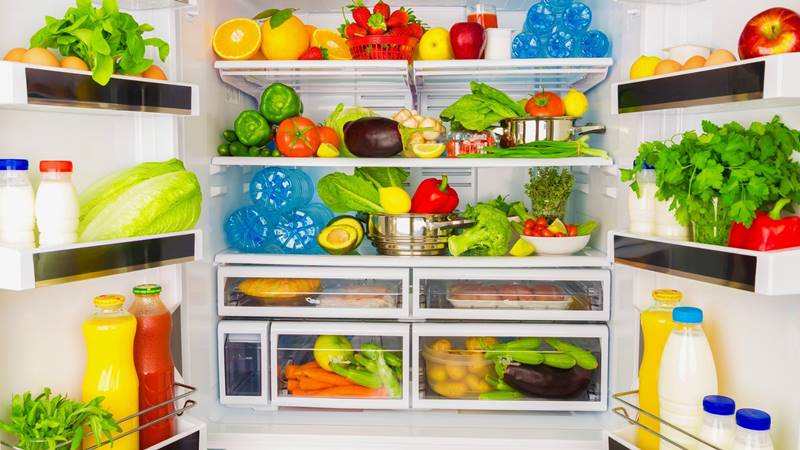
Eating fresh foods is often deemed to be a healthier choice. The Malaysian Dietary Guidelines also recommend including more fresh foods in our daily diet, such as fresh vegetables, fruits, fish, meat and seafood, for our nutritional needs.
In choosing fresh foods, we need to be mindful of several factors such as the fact that they spoil easily and are prone to contamination.
Do not assume that all fresh foods are free of contaminants as food contamination can occur in any of the following four areas before it reaches the market and the consumers.
The first area is during production.
There have been cases of contaminants (e.g. disease outbreak) affecting crops or animals.
For example, there have been cases of high levels of mercury in caught fish that have made the entire catch unfit for human consumption.
The second area is during storage.

The risk of contamination and spoilage can occur when fresh foods are not stored properly, especially at the wrong temperatures or when they are exposed to pests such as cockroaches and rats.
The third area is during the distribution of fresh foods to the market.
Again, environmental factors such as temperature differences or exposure to dust and pollutants during the transportation of perishable foods can contribute to the risk of contamination and spoilage.
Lastly, improper preparation methods (either poor hygiene or unsanitary practices) during the handling of food can also cause the contamination of fresh foods.
Selecting fresh foods safely
The possibility of fresh foods being contaminated should not deter you from avoiding fresh foods.
There are several ways you can select fresh foods safely and avoid consuming contaminated foods that can lead to foodborne illnesses such as infections caused by bacteria, viruses or parasites, or poisoning caused by harmful toxins or chemicals.
Do note that fresh foods are not limited to just fruits and vegetables; they also include meats, poultry, eggs and seafood.
Here are some tips you can follow in order to select, store and prepare your fresh foods safely:
Pick it right
• Choose unblemished fruits and vegetables that are not dry, bruised or damaged.
Make sure there is no discolouration, no rotten smell and no pests such as insects.
It should look clean and fresh.
• For pre-packaged or pre-cut fresh foods such as fruits, only select those that have been refrigerated or kept on ice.
• When choosing fresh seafood, it should not have a pungent or rotten odour.
For fish, the eyes should be clear and not sunken, the flesh should be firm and resilient, and the gills should be bright red and slime-free.
Shrimps or prawns should have shiny, translucent flesh and should not smell.
Crabs should be bought live as they spoil very quickly.
• Freshly butchered meat or poultry should have firm and resilient flesh.
Avoid buying meat or poultry that have a pungent smell and feel sticky or slimy.
If the meat or poultry has developed these characteristics, it should not be bought, or even used for cooking (for instance, if you bought the meat or poultry earlier, but did not store it properly and it is now sticky or slimy).
• Select eggs with uncracked and clean shells. Do not purchase expired eggs with a rotten smell.
• Keep your fresh fruits and vegetables separated from raw meat, poultry and seafood – this rule always applies, regardless of whether you are bringing them back from the market or storing them in the refrigerator or freezer.
Store it right
• Fresh fruits and vegetables should be kept in a clean refrigerator that maintains a temperature of 4°C or lower.
Put your mind at ease by checking the temperature with a thermometer.
• Ensure that all pre-packaged and pre-cut fresh foods are kept in the refrigerator.
You may opt to transfer them into sealable containers.
• Always ensure that raw foods are kept separated from cooked foods.
Also, always ensure that fruits and vegetables are stored separately from raw meat, poultry or seafood.
• Take extra care if you need to thaw raw meat, poultry or seafood in the refrigerator, to ensure that they do not contaminate any of your fruits and vegetables, or other cooked food, kept in the refrigerator.
• Refrigerate eggs that will not be used immediately for cooking and do not leave eggs out to ‘thaw’ for more than two hours.
The condensation that forms will encourage bacterial growth or allow bacteria to move into the eggs.
Prepare it right
• Wash your hands and all kitchen utensils (knife, cutting board, etc) used for the preparation of foods.
• Wash raw foods thoroughly with running water.
It is recommended to soak fresh vegetables briefly in water to remove physical residue such as sand and small pebbles, before washing it again under running water.
Avoid using soap or detergent when washing raw foods.
• Use a dedicated knife and chopping board for fruits and vegetables, and another set for raw meat, poultry and seafood.
• Cut off and dispose any damaged or bruised areas on fresh fruits and vegetables, and discard the entire fruit or vegetable if it appears rotten.
• Fresh fruits and vegetables that are to be peeled should also be washed as this prevents dirt and bacteria from contaminating any of your work surfaces.
• Use a soft brush to clean the surface of tubers such as potatoes and turnips.
Fit for human consumption
Remember, while you should eat fresh foods as often as possible, it is also not practical to completely remove processed or pre-packaged foods from our diet.
With the advancement of technology, several processed foods nowadays are fortified with additional vitamins or minerals that can help meet our daily nutritional needs.
Even frozen vegetables and fruits can be a healthy choice as the process of freezing retains a good level of nutrients, especially if they are frozen while fresh.
In addition, some foods like grains and cereals (rice, oats, wheat), as well as milk, require various processing methods upon harvesting to retain their shelf life before they get to the consumers.
Thus, on the whole, while we should consume as much fresh foods as possible in our daily diet, we can also include some processed or pre-packaged and frozen foods.
Dr Roseline Yap is a nutritionist and Nutrition Society of Malaysia council member. This article is courtesy of the Malaysian Paediatric Association’s Positive Parenting programme in collaboration with expert partners. For further information, please e-mail starhealth@thestar.com.my or visit www.mypositiveparenting.org. The information provided is for educational and communication purposes only and it should not be construed as personal medical advice. Information published in this article is not intended to replace, supplant or augment a consultation with a health professional regarding the reader’s own medical care. The Star does not give any warranty on accuracy, completeness, functionality, usefulness or other assurances as to the content appearing in this column. The Star disclaims all responsibility for any losses, damage to property or personal injury suffered directly or indirectly from reliance on such information.
Did you know?
Foodborne illnesses typically occur within three days of eating contaminated foods, but it also depends on the degree of contamination.
Your body may show symptoms within 20 minutes or as late as six weeks after.
Common symptoms include abdominal pain, diarrhoea, vomiting and flu-like symptoms (e.g. fever, headache and body ache).
Source:-The Star

Leave a Reply